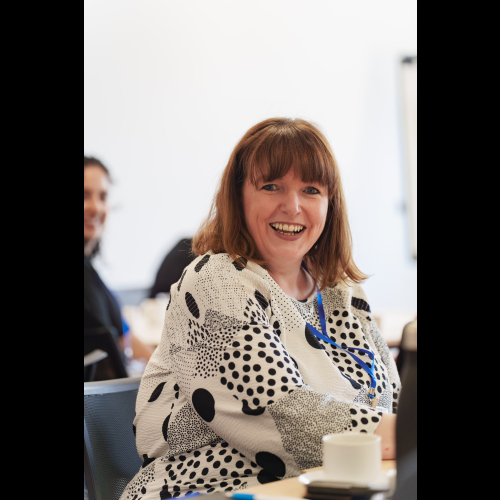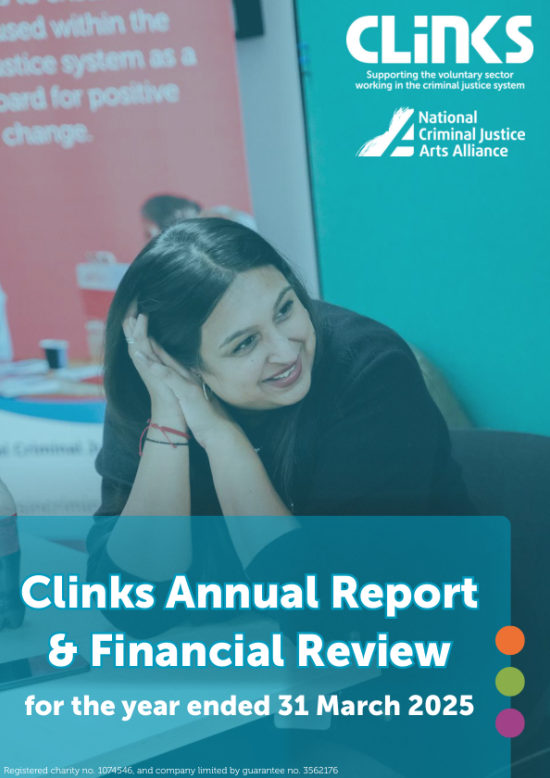Over the past year when I’ve been going around on the sector’s behalf networking, developing and building relationships I often say that “my job is to help you do your job”. That’s what we do at Clinks – we aim to provide support to and create a supportive context within which voluntary organisations working with people in the criminal justice system and their families can flourish.
That work takes many forms and defining it means different things to different people and organisations. So when it comes to measuring our impact we face some specific challenges.
We’re fully committed at Clinks to making sure we’re focussed on what we should be doing and whether it’s working. To this end we undertake regular impact assessments and last week we launched our third.
Researched and written by independent consultants Helen Shaw and Chris Tully between February and March 2016, it involved an analysis of the context in which Clinks works, document analysis, a survey, semi-structured interviews, observation and analysis and interpretation of data. I know – sounds a bit dry!
That’s the science bit – it was independent and robustly conducted. The magic bit is what came out through a dynamic process of asking people about the three core questions at the heart of what we needed to know:
Are we providing the range of services and activities that our stakeholders want and need?
What difference are we making to members and the wider voluntary sector in criminal justice, and ultimately, to people with experience of the system?
Is our work is of a good quality?
Chris and Helen gathered the views of a range of Clinks members and key stakeholders, including small, medium and large voluntary sector organisations, statutory stakeholders from local and national organisations, funders and those who have worked in partnership with Clinks. This is my opportunity to thank those people for their time, their honesty and their commitment to helping Clinks be the best organisation it can be.
Overall the feedback was incredibly positive and where offered, criticism was provided to be helpful and in a constructive spirit.
So, what did we find out about ourselves? We learned that Clinks provides the sector with an essential information sharing service, noted for its accuracy and ability to explain complex things to snowed under peo ple, and at times when they need it.
People like how we communicate, via Light Lunch and increasingly via social media. This was good to hear as we took on feedback from our 2013 impact assessment and have really focussed growing our base and presence on Twitter, with over 10,500 followers now. People also think our website is really useful, full of information, but thought we should pay some attention to how user-friendly it is.
Our consultation responses, briefings and reports are viewed as helpful, summarising and digesting complex information in a way which is timely and knowledgeable. But we need to strike the balance between being consultative, providing the sector with a voice, and not asking too much of a sector under pressure.
Events and training opportunities are immensely popular, especially programmes which focus on sustainability. There was also praise for one-to-one support through consultancy services, legal support as well as networking opportunities. But we do need to look more at where we offer training and how we improve affordability especially for those who’ll need to travel.
Key to Clinks' success is our staff team. Because of the team we have and the way they work with one another, with the sector and with our network of partners, my job is made much easier and Clinks is much better able to achieve what we need to on the sector's behalf. It’s the staff that make Clinks an organisation with a good reputation for being credible, effective, knowledgeable and good to work with.
The sector values Clinks’ ability to coordinate opinion from across the community. There was praise for our roundtable way of working and responding to a variety of issues and needs in a collaborative way. This includes praise for how we make and maintain relationships as well as managing difficult conversations at times.
Our work at a local and regional level supports and strengthens the sector. This work allows us keep an ear to the ground, listening to and working alongside our members. It has also generated some long-term partnerships with regional infrastructure bodies to make the work possible.
There is always room for improvement and this assessment has given us plenty of food for thought.
We need to make sure we know what we stand for and who we serve, especially if resources are constrained.
We need to think about how we respond to a more localised and devolved agenda and a sector that will need to work in different ways and in different places.
We need to pay attention to how we promote the use of the sector and its role especially as policy thinking changes.
The major criminal justice reforms (both past and present) make it all the more important that Clinks is ready to lead and be a useful partner.
The feedback and input into this impact assessment has been incredibly helpful, and in response we’re making 10 pledges to the sector.
Each pledge looks at something we need to focus on or maintain. Collectively they represent our development plan; ensuring that what we do is necessary, useful and of the quality you need and have come to expect.
If our job is to help you do your job, then ultimately we are all focussed on supporting people in the criminal justice system and their families. They are the real beneficiaries of our sector’s work, and they deserve all our best efforts.
What's new
Blogs
Anne Fox CEO of Clinks to stand down after a decade of service
Latest on X
The role is for a leader from an organisation focused on racially minoritised people, with expertise in service delivery, policy, advocacy, or related areas in criminal justice. Racial disparities are present at every CJS stage. This role ensures these voices are central in shaping policy to help address and eradicate them. Apply by Mon 18 Nov, 10am. More info: https://www.clinks.org/voluntary-community-sector/vacancies/15566 #CriminalJustice #RR3 #RacialEquity

